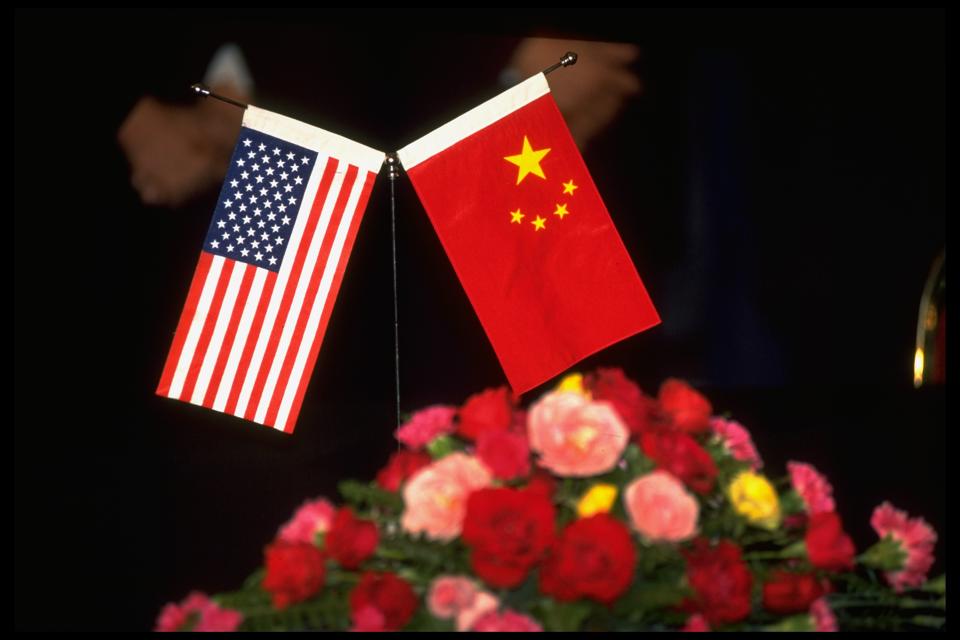Scrutiny of China’s role in American universities is intensifying on Capitol Hill and fast becoming one of the most aggressive and sustained bipartisan oversight campaigns in Washington.
While attention has predictably focused on recent actions by the executive branch such as the Trump Administration’s efforts to preclude foreign students from enrolling at Harvard University, or its pause on new student visa interviews, Congressional scrutiny on the nexus between American colleges and China predates those actions and is already far-reaching.
Over the past several years, Congress has laid the groundwork for a broader, more structural crackdown on how U.S. universities interact with Chinese institutions, researchers and students.
That work is now entering a more public and punitive phase.
Longstanding legislative focus
For years, lawmakers on both sides of the aisle have raised concerns about China exploiting the openness of U.S. universities to advance its military and technological ambitions. As far back as 2019, Senate hearings and reports warned that Chinese government-linked entities were using academic partnerships to facilitate technology transfers and undermine research integrity.
Lawmakers are continuing to sound the alarm.
“Our technological landscape has evolved rapidly during the last quarter century,” says Congressman Derek Tran (D-CA), the son of Vietnamese refugees who currently serves on the House Armed Services Committee. “Congress must ensure that our national security and oversight responsibilities keep pace with the innovation produced by our universities and Capitol Hill must remain laser-focused on confronting these national security challenges.”
Congress is now going further and faster than it has in the past toward this end.
Lawmakers are now wielding bipartisan power, drafting sweeping legislation and conducting relentless oversight to curb China’s growing academic foothold. Congress is no longer merely issuing warnings but formulating and implementing policy. From reforms to Section 117 of the Higher Education Act, to proposed new powers for CFIUS, legislators are crafting an expansive web of legislative constraints designed to significantly curb Chinese influence across the U.S. higher education landscape.
Partnerships under pressure
This shift is most visible in mounting congressional pressure on U.S. universities to sever academic ties with Chinese institutions. Once framed as benign, these partnerships are increasingly cast as potential vectors for foreign influence or technology transfers.
In early 2025, House Select Committee on China Chairman John Moolenaar (R-MI) and House Education Committee Chairman Tim Walberg (R-MI) deployed letters to Eastern Michigan University (EMU), Oakland University and the University of Detroit Mercy urging them to terminate partnerships with Chinese universities.
EMU responded by ending its engineering teaching programs with Guangxi University and Beibu Gulf University, noting that while these programs did not involve research or technology transfer, the university prioritized national security concerns.
Oakland University similarly announced the discontinuation of programs with three Chinese institutions. The University of Detroit Mercy indicated it is in the process of dissolving its partnerships, emphasizing that the programs were solely for undergraduate teaching without any research components.
Similarly, Duke University has come under congressional scrutiny for its joint venture with Wuhan University known as Duke Kunshan University (DKU). Lawmakers expressed concerns that the partnership could facilitate access to sensitive U.S. technologies by the Chinese government, and urged Duke to reevaluate its partnership with DKU.
Probing Chinese scholars
Beyond these institutional arrangements, Congress has sought detailed information about Chinese nationals studying at elite U.S. universities.
In March 2025, the House Select Committee on the Chinese Communist Party requested data from institutions including Stanford University seeking information on Chinese students’ academic backgrounds, research affiliations and funding sources. The committee cited concerns that Chinese students in STEM programs might be part of a systematic effort by the Chinese government to acquire sensitive technologies.
Harvard University is facing similar scrutiny, with lawmakers demanding explanations for its collaborations with Chinese entities linked to military and sanctioned organizations. The inquiry focuses on potential dual-use research and partnerships that could inadvertently support China’s military advancements.
Congressional scrutiny of Harvard University comes at a time when the Trump Administration is aggressively focusing on that elite institution and has announced it will “aggressively revoke” visas for Chinese students with connections to the Chinese Communist Party or studying in “critical fields.”
The measure has prompted some lawmakers to call for a more nuanced approach. “We should not have a blanket ban on Chinese and international students coming to the United States,” says Rep. Ro Khanna (D-CA), who represents Silicon Valley in Congress and serves on the House Select Committee on China. “It will hurt our leadership in the world and is not consistent with our values.”
Addressing foreign influence
Congress has proposed several legislative measures aimed at increasing transparency and reducing foreign influence in U.S. higher education.
The Defending Education Transparency and Ending Rogue Regimes Engaging in Nefarious Transactions (DETERRENT) Act seeks to amend Section 117 of the Higher Education Act by lowering the reporting threshold for foreign gifts and contracts from $250,000 to $50,000 and to any gift or contract from countries of concern, including China. The act also proposes prohibiting contracts with certain foreign entities and requiring disclosures of foreign investments within university endowments.
Additionally, the House has advanced legislation that would restrict Department of Homeland Security funding to U.S. universities maintaining relationships with specific Chinese institutions, particularly those tied to China’s military or intelligence services.
These legislative efforts underscore a growing bipartisan commitment to safeguarding U.S. academic institutions from potential foreign exploitation, signaling a significant shift in the landscape of international academic collaboration.
What comes next?
The consensus on China’s influence is one of the few bipartisan constants in an otherwise fractured political landscape. American universities should expect more hearings, more target letters, more proposals and ultimately more laws.
Congress has made clear that academic openness cannot come at the expense of national security. As the scope of scrutiny widens, American universities will have to strike a new balance—one that safeguards their missions while addressing mounting concerns on Capitol Hill.

